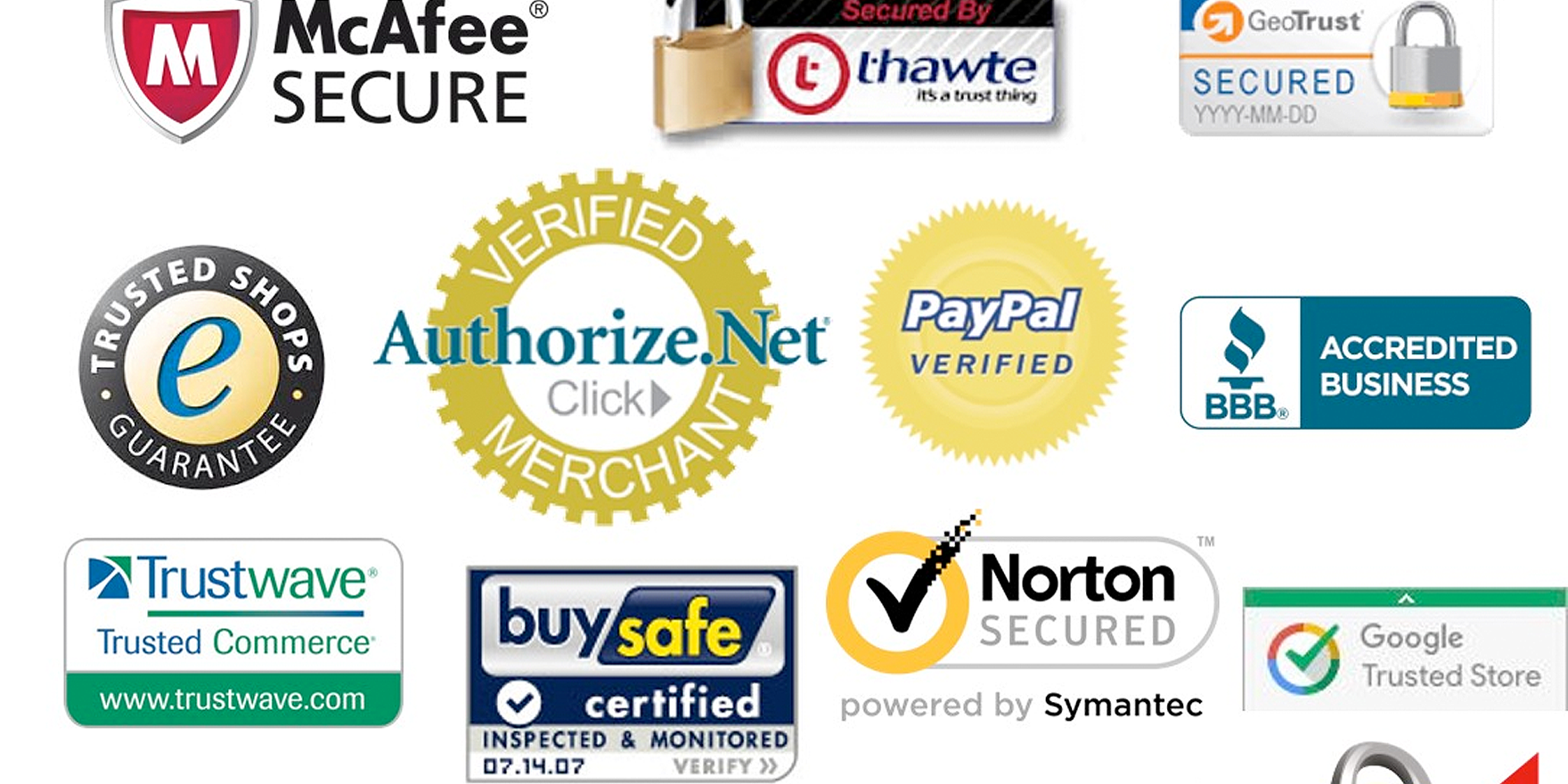SSL Site Seals
June 06th, 2018 / By Andrew Currie

June 06th, 2018 / By Andrew Currie

Back in the early days of the web, someone thought it would be cool to create seal of authenticity assets for your SSL certificate that you could place on your website as a symbol of trust. These seals are usually just the logo of the Cerificate Authority (CA) that provides your website’s SSL certificate and often verbiage such as ‘Secured By’ etc.
From the users perspective, websites using SSL show a padlock in the address bar and Extended Validation (EV) SSL certificates also display the company ID and color the address bar green. As an indicator of trust, especially when making online purchases, certificate authorities began providing SSL site seals. These seals were also referred to as trust seals.
The SSL site seals, when clicked, would display a full report on the security of the website you are visiting. This information would include the name of your certificate authority, the type of certificate and also the grade of encryption, your domain name and other technical details.
Do I need an SSL Site Seal?
The short answer is probably not. The long answer is that site seals are a bit outdated of a concept and the seal assets themselves contain no security value at all. Just like any other image you can find online, SSL site seals can also be copied and displayed on any webpage. In addition to the site seal assets being copied, the security reports displayed could also easily be faked and/or contain inaccurate information since they are displayed using HTML and JavaScript on the website itself instead of any third-party tool that the webmaster doesn’t control. If you are concerned about the security of a website you are visiting or weary of making purchases on it, you can use the SSL Server Test from Qualys to grade the security of any website. If the website you are testing scores an A grade, you can rest assured that the security on the website is properly configured and your transmissions to and from the website are encrypted.
Do SSL Site Seals Help Conversions?
There is an urban myth among web developers that by putting SSL site seals on your website you will be giving confidence to your visitors and as a result your conversion rates will improve. This is incorrect and independent studies and research has proven this concept is nonsense.
The SEO Effects of Using Site Seals
It’s common knowledge among SEO enthusiasts that backlinks (especially one-way links) provide an excellent boost to your search engine rankings. The more one-way links you have pointing to your website the better. Certificate Authorities are receiving a tremendous boost in their search engine rankings from SSL site seals and website owners are sharing some of their SEO authority with the CA’s. If you must use an SSL site seal, make sure you add rel=“nofollow” to the hyperlink of your seal. This way you will not be giving away a free backlink to your SSL provider.
Overall, I would advise against using SSL site seals. Instead you should focus on ensuring your site forces delivery of all content over HTTPS and passes an SSL Server Test with flying colors! Thanks for reading, if you have any feedback, comments or suggestions please leave them below.